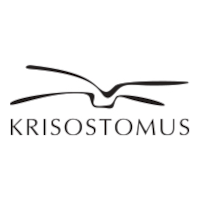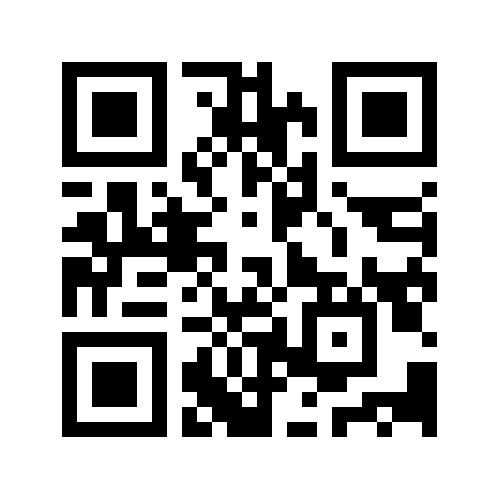-
Sodo prekės
- Vejapjovės, žoliapjovės
- Trimeriai (žoliapjovės), krūmapjovės
- Sodo technikos dalys
- Drėgmės, temperatūros, pH, ORP matuokliai
- Lapų siurbliai, šakų smulkintuvai, trinkelių valytuvai
- Gyvatvorių, žolės žirklės
- Karučiai
- Aeratoriai, kultivatoriai
- Malkų skaldyklės
- Žemės grąžtai
- Žoliapjovės, vejos robotai
- Sodo traktoriukai
- Šlavimo mašinos
-
Sportas, laisvalaikis, turizmas
- Turistinis inventorius
- Gertuvės
- Turistinės ir kelioninės kuprinės
- Turistinio inventoriaus, drabužių ir avalynės priežiūros priemonės
- Pripučiami čiužiniai ir baldai
- Turistiniai čiužiniai ir kilimėliai
- Palapinės
- Alpinizmo įranga
- Turistiniai baldai
- Miegmaišiai
- Biotualetai
- Autoturizmo reikmenys
- Priemonės nuo uodų
- Gimnastikos ir fitneso prekės
- Masažo reikmenys
- Vandens sportas
- Kuprinės ir krepšiai
- Futbolas
- Įtvarai
- Rakečių sportas
- Ėjimo lazdos
- Krepšinis
- Kovos menai
- Golfas
- Smiginis
- Žingsniamačiai, chronometrai, širdies ritmo monitoriai
- Tinklinis
- Diskgolfas
- Baletas ir meninė gimnastika
- Kamuolių pompos ir adatos
- Beisbolas
- Jojimo prekės
- Rankinis
- Grindų ir žolės riedulys
- Dviračiai, riedučiai, riedlentės
- Svoriai, svarmenys, grifai
- Žaidimų stalai
- Treniruokliai, treniruočių įranga
- Kamuoliai
- Aminorūgštys
- Angliavandeniai
- Baltymai
- Batonėliai
- Kiti papildai ir preparatai
- Energetikai
- Funkcinis maistas
- Glutaminas
- Kreatinas
- L-karnitinas
- Papildai ir preparatai masei auginti
- Papildai ir preparatai sąnariams
- Produktai atsistatymui
- Riebalų degintojai
- Papildai ir preparatai lieknėjimui
- Testosterono skatintojai
- Vitaminai
-
Baldai ir namų interjeras
- Virtuvinės spintelės
- Valgomojo komplektai
- Virtuvės ir valgomojo kėdės
- Virtuvės ir valgomojo stalai, staliukai
- Virtuvės baldų komplektai
- Virtuvės stalviršiai
- Virtuvės baldų priedai
- Virtuvės baldų kolekcijos
- Vonios komplektai
- Vonios spintelės
- Vonios veidrodžiai
- Vonios lentynos
- Vonios aksesuarai
- Vonios kambario baldų kolekcijos
- Vaikiškos lovos
- Vaikiški čiužiniai
- Vaikiškos kėdutės ir staliukai
- Vaikiški sėdmaišiai, foteliai, pufai
- Vaikiškos lentynos
- Vaiko kambario baldų komplektai
- Kūdikių lovytės
- Vaikiškos komodos
- Vaikiškos spintos
- Vaikiškos spintelės
- Vaikiški rašomieji stalai
- Vaikiškos mokyklinės kėdės
- Žaislų dėžės
- Vaikų kambario baldų kolekcijos
-
Buitinė technika ir elektronika
- Vandens filtrai
- Virduliai
- Kavos aparatai
- Kavamalės
- Gruzdintuvės
- Svarstyklės (virtuvinės)
- Trintuvai, smulkintuvai
- Vaflinės, el. blynų keptuvės
- Pjaustyklės, peilių galąstuvai
- Garų puodai, daugiafunkciai puodai
- Išskirtiniai maisto gaminimo prietaisai
- Plakikliai
- Daigyklos, lempos augalams
- Vakuumatoriai
- Sulčiaspaudės
- Sumuštinių keptuvės
- Virtuviniai kombainai
- Kokteilinės
- Skrudintuvai
- Gazuoto vandens aparatai ir priedai
- Griliai, marinatoriai
- Mėsmalės
- Vandens aparatai
- Vaisių džiovyklės
- Duonkepės
- Dulkių siurbliai-robotai
- Dulkių siurbliai
- Dulkių siurbliai-šluotos
- Plaunantys siurbliai
- Svarstyklės (buitinės)
- Langų valytuvai
- Garais valantys prietaisai, grindų valytuvai
- Akumuliatoriai dulkių siurbliams
- Dulkių siurblių priedai
- Meteorologinės stotelės, termometrai
- Masažuokliai
- Plaukų formavimo ir tiesinimo prietaisai
- Elektriniai dantų šepetėliai
- Barzdaskutės
- Plaukų džiovintuvai
- Manikiūro ir pedikiūro aparatai
- Plaukų kirpimo mašinėlės
- Šilumos prekės
- Elektrinių dantų šepetėlių antgaliai
- Irigatoriai
- Epiliatoriai
- Kraujospūdžio matuokliai
- Veido priežiūros prietaisai
- Inhaliatoriai
- Masažinės vonelės
- Termometrai
- Ventiliatoriai
- Kondicionieriai, šilumos siurbliai, rekuperatoriai
- Šildytuvai
- Oro drėkintuvai
- Vandens šildytuvai
- Grindų ir veidrodžių šildymo kilimėliai
- Vonios ventiliatoriai
- Dūmų detektoriai
- Oro reguliavimo įrangos priedai
-
Vaikams ir kūdikiams
- Kūdikio priežiūrai
- Maitinimo priemonės
- Prekės mamoms
- Autokėdutės ir jų priedai
- Vaikiški vežimėliai ir jų priedai
- Maniežai vaikams
- Gultukai ir sūpynės
- Nešioklės
- Kūdikių ir vaikų maistas
- Antspaudai kūdikiams
- Vaikštynės
- Čiužiniai kūdikiams
- Sauskelnės
- Kūdikių lovytės
- Patalynė kūdikiams
- Kūdikio kraitelis
- Saugos varteliai, apsaugos
- Drabužiai kūdikiams
-
Kompiuterinė technika
- Korpusų priedai
- Vidiniai kietieji diskai (HDD, SSD, Hybrid)
- Operatyvioji atmintis (RAM)
- Korpusai
- Valdikliai
- Kompiuterių ventiliatoriai
- Procesorių aušintuvai
- Maitinimo šaltiniai (PSU)
- Pagrindinės plokštės
- Komponentų priedai
- Vaizdo plokštės (GPU)
- Termo pastos
- Optiniai įrenginiai
- Procesoriai (CPU)
- Aušinimas vandeniu - aksesuarai
- Garso plokštės
- Vaizdo plokščių aušintuvai
- TV imtuvai, FM, video plokštės
- Aušinimas vandeniu - rinkiniai
-
Kvepalai, kosmetika
- Makiažo pagrindai, pudros
- Bronzantai, skaistalai
- Lūpų dažai, blizgiai, balzamai, vazelinai
- Akių šešėliai, pieštukai, blakstienų tušai, serumai
- Manikiūro, pedikiūro priemonės
- Kosmetinės, veidrodėliai
- Makiažo šepetėliai, kempinėlės
- Nagų lakai, stiprintojai
- Antakių dažai, pieštukai
- Priklijuojamos blakstienos, blakstienų rietikliai
- Veido kremai
- Veido prausikliai, valikliai
- Veido aliejai, serumai
- Veido kaukės, paakių kaukės
- Veido masažuokliai, valymo įrankiai
- Paakių kremai, serumai
-
Apranga, avalynė, aksesuarai
-
Autoprekės
-
Mobilieji telefonai, Foto ir Video
- Mobilieji telefonai
- Telefonų dėklai
- Apsauginės plėvelės telefonams
- Telefono laikikliai
- Krovikliai telefonams
- Laidai telefonams
- Atsarginiai maitinimo šaltiniai (power bank)
- Priedai telefonams
- Atminties kortelės telefonams
- Telefonų dalys ir įrankiai jų remontui
- Asmenukių lazdos (selfie sticks)
- Akumuliatoriai telefonams
- Laisvų rankų įranga
- Ausinės
- Skaitmeniniai fotoaparatai
- Priedai fotoaparatams
- Dėklai, krepšiai fotoaparatams ir objektyvams
- Fotografijos apšvietimo įranga
- Akumuliatoriai fotoaparatams
- Atminties kortelės fotoaparatams, kameroms
- Momentiniai fotoaparatai
- Fotoaparato stovai
- Objektyvai
- Fotoaparatų krovikliai
- Filtrai objektyvams
- Įkraunami elementai
-
Virtuvės, buities, apyvokos prekės
- Virtuvės įrankiai
- Kepimo indai, popierius, formos
- Indai, lėkštės, pietų servizai
- Maisto saugojimo indai
- Taurės, puodeliai, ąsočiai
- Puodai, greitpuodžiai
- Keptuvės
- Peiliai ir jų priedai
- Stalo įrankiai
- Termosai, termopuodeliai
- Kavinukai, virduliai
- Prieskonių indeliai, malūnėliai
- Pjaustymo lentelės
- Prieskoniai, prieskonių rinkiniai
- Konservavimo indai ir priedai
- Gertuvės, termo puodeliai
- Vienkartiniai, teminiai indai
- Vandens filtrai
-
Santechnika, remontas, šildymas
- Oro drėkintuvai
- Meteorologinės stotelės, termometrai
- Oro sausintuvai, drėgmės surinkėjai
- Eteriniai aliejai difuzoriams
- Ventiliatoriai
- Oro valytuvai
- Oro reguliavimo įrangos priedai
- Vonios ventiliatoriai
- Kondicionieriai, šilumos siurbliai, rekuperatoriai
- Mechaniniai įrankiai
- Elektriniai įrankiai
- Tvirtinimo detalės
- Įrankių dėžės, laikikliai
- Sandėliavimo lentynos
- Buitinės kopėčios, rampos
- Surenkamos lentynų sistemos
- Metalo detektoriai
- Sniego kastuvai, stūmikliai
- Platforminės svarstyklės
- Sniego valytuvai
- Aukšto slėgio plovimo įranga
- Stebėjimo kameros
- Durų skambučiai, akutės
- Apsaugos sistemos, valdikliai
- Davikliai, jutikliai
- Dūmų, dujų detektoriai
- Domofonai
- Signalizacijos
- Apsaugos sistemų priedai
- LED juostos
- Elektros jungikliai, rozetės
- Elementai
- Žibintuvėliai, prožektoriai
- Elementų krovikliai
- Prailgintuvai
- Elektros lemputės
- Komponentai saulės jėgainėms
- Maitinimo šaltiniai
- Tekstiliniai kabeliai ir elektros kaladėlės
- Laikmačiai, termostatai
- Įmontuojami šviestuvai, LED panelės
-
Dovanos, dekoracijos, gėlės
- Kvepalai Jai
- Kosmetika Jai
- Aksesuarai moterims
- Mobilieji telefonai
- Belaidės ausinės
- Kvapų difuzoriai
- Dulkių siurbliai-robotai
- Kavos aparatai
- Išmanieji laikrodžiai, apyrankės
- Gruzdintuvės
- Namų kvapai
- Plaukų formavimo ir tiesinimo prietaisai
- Epiliatoriai
- Plaukų džiovintuvai
- Veido priežiūros prietaisai
- Elektriniai dantų šepetėliai
-
Gyvūnų prekės
- Žaislai šunims
- Drabužiai šunims
- Dubenėliai, dėžės maistui
- Guoliai, pagalvėlės
- Transportavimo narvai, krepšiai
- Sausas maistas šunims
- Priežiūros priemonės gyvūnams
- Kelioniniai reikmenys
- Skanėstai šunims
- Pavadėliai šunims
- Antkakliai, petnešos šunims
- Konservai šunims
- Vitaminai, papildai, antiparazitinės priemonės šunims
- Kosmetinės priemonės gyvūnams
- Dresūros priemonės šunims
- Žaislai katėms
- Sausas maistas katėms
- Draskyklės
- Konservai katėms
- Kraikas katėms
- Kačių tualetai
- Skanėstai katėms
- Pavadėliai, antkakliai, petnešos katėms
- Vitaminai, papildai, antiparazitinės priemonės katėms
- Guoliai, pagalvėlės
- Transportavimo narvai, krepšiai
- Dubenėliai, dėžės maistui
- Kosmetinės priemonės katėms
- Priežiūros priemonės katėms
-
n18.lt specializuota parduotuvė
n18.lt specializuota parduotuvė suaugusiems
Prekes suaugusiems specializuotoje internetinėje parduotuvėje n18.lt gali matyti tik lankytojai, kurie yra ne jaunesni nei 18 metų. Šioje svetainėje skleidžiama informacija gali daryti neigiamą poveikį asmenims iki 18 metų.Peržiūrėti prekes -
Apsauginės, dezinfekcinės, medicininės prekės
- Kaukės, respiratoriai
- Apsauginės sienelės, dezinfekcinės stotelės
- Dezinfekcinis skystis
- Vienkartinės pirštinės
- Dezinfekciniai valikliai
- Apsauginiai skydeliai ir akiniai
-
Knygos
- Maisto prekės
-
Išmanūs namai
- Išparduotuvė
-
Biurui, mokyklai, kūrybai
Rodyti daugiau kategorijų
 Pavasario superpasiūlymai! Viskas, ko reikia, vienoje vietoje!
Pavasario superpasiūlymai! Viskas, ko reikia, vienoje vietoje! 





